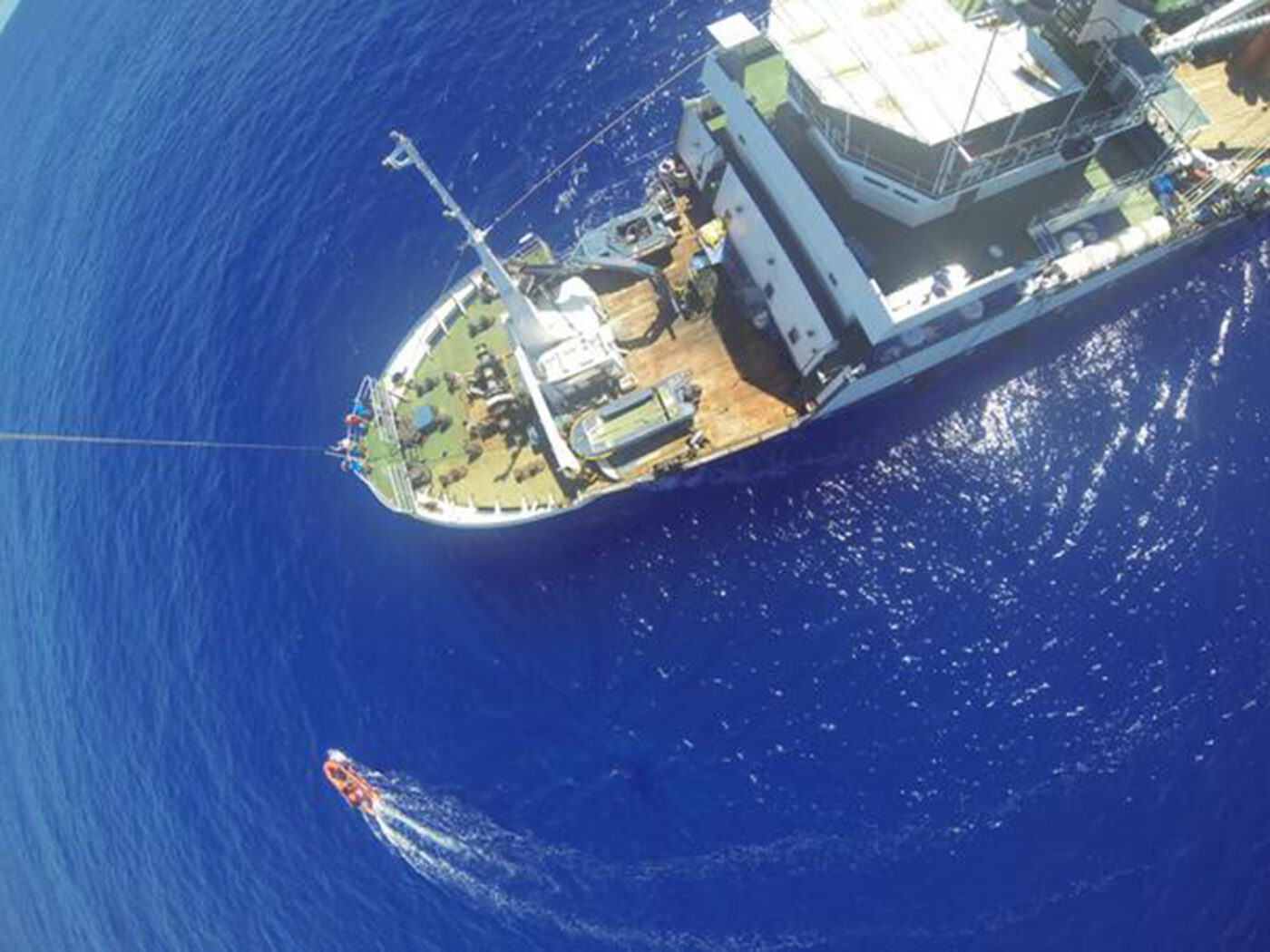A RESEARCH team of experts and students conducted a two-week expedition beginning on May 3 to explore Benham Rise, an undersea region east of Luzon believed to be a rich source of marine life.
Physics junior Socorro Rodrigo volunteered to be a part of the research team that performed physical and biological oceanographies in the area.
Under the moniker Benham Bottom Grabbers, they also conducted a survey of the Benham Rise’s benthic zone, which is the bottommost part of the region.
The team, led by Dr. Hildie Nacorda of the University of the Philippines (UP) Diliman’s Marine Science Institute, was composed of researchers and volunteers from the Bureau of Fisheries and Aquatic Resources, UP Los Baños (UPLB) School of Environmental Science and Management, UPLB Institute of Biological Sciences, UP Mindanao, UP Baguio and Xavier University.
The research is part of the Exploration, Mapping and Assessment of Deep Water Areas Program funded by the Department of Science and Technology.
This is the second exploration of Benham Rise, the first one being an oceanographic survey back in 2012, after the United Nations Convention on the Law of the Sea (UNCLOS) granted the Philippines sovereignty over the region.
Benham Rise, which has a depth of 50 meters at its shallowest point and spans 13 million hectares— bigger than 10.5 M-hectare Luzon—still remains the least explored of all Philippine waters.
Physical and biological oceanography
Rodrigo was part of the physical oceanography group which, along with the biological oceanography group, was tasked to survey the waters that pass through Benham Rise.
Water that flows from the Pacific Ocean hits the eastern side of the Philippines, dividing it into two currents that flow upward and downward.
The northern current, which passes through Benham Rise, consequently affects the water’s properties as it interacts with the underwater land mass.
Rodrigo said that water properties such as oxygen, chlorophyll and salinity were measured in order to find out how conducive the underwater area is for biological productivity.
Furthermore, opposing water currents, otherwise known as water eddies, also affect the biological make-up of Benham Rise, according to Rodrigo.
The team aimed to find water currents that flow upward, bringing up high-nutrient water from the bottom to the surface. “If we find them (water eddies), [this] means that there’ll be lots of fishes of high productivity,” said Rodrigo.
Currently, the research team is still processing data from the oceanographic survey.
Marine resources
While its larger areas remain unexplored, Benham Rise is presumably rich in marine resources, natural gas and steel-producing minerals like manganese.
It is also likely for the area to contain massive oil deposits that could help the Philippines become self-sufficient on energy.
Ateneo Environmental Science Society President Ingrid Calub said that exploring Benham Rise could put the Philippines at an advantage. “Investing in the research of the Benham Rise gives a possibility for us to discover new species and minerals.”
According to Rodrigo, a number of the fish that they found in Benham Rise were “commercially-important.”
Whalesharks, bamboo sharks, galunggong and bluefin tuna are some of the discoveries in this research, indicating that the area has a healthy ecosystem.
Ateneo Biological Organization President Jhoana Garces said that the region’s resources might be threatened. She said that regulations for sustainable fishing should be implemented at Benham Rise not only to prevent overfishing but to also help fishermen benefit from these resources on a long-term basis.
The Philippines opened Benham Rise as a fishing site in 2013.
Garces further added that the Philippines needs to develop ecotourism.
“The thing about ecotourism is that we need to sell not only the good attractions about the place, but the advocacy and conservation steps undertaken. This way, we can empower the community in many ways,” she said.
For Calub, responsible ecotourism should be imposed on the Benham region.
“Funding isn’t the only issue here. It has a lot to do with promoting responsible ecotourism wherein the area’s quality won’t be sacrificed because of the tourist activities,” she said.







